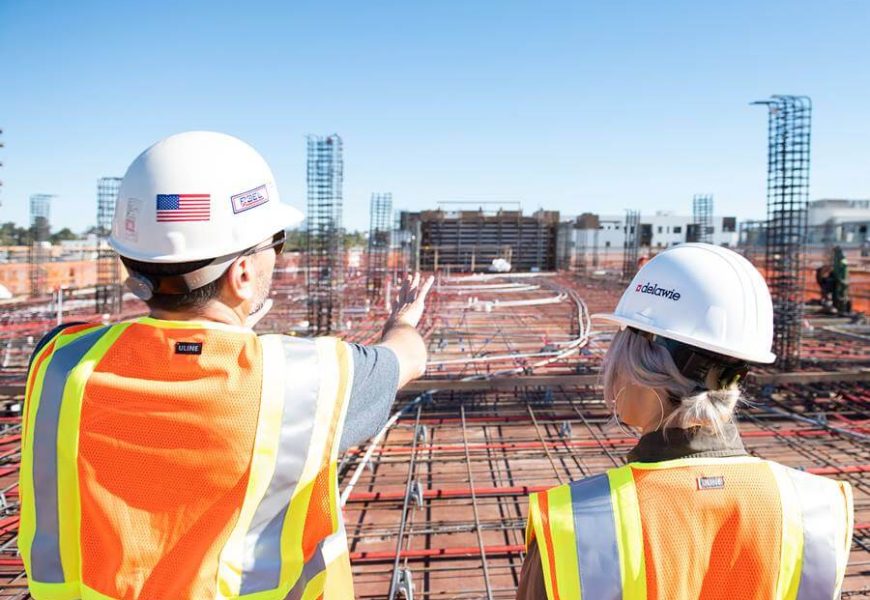Construction estimating services are a cornerstone of the building industry, ensuring that projects are completed efficiently and within budget. These services provide a comprehensive financial roadmap, transforming a project’s vision into a practical and executable plan. Below, we delve into the critical aspects of construction estimating, highlighting its methods, components, and benefits, especially for builders and developers seeking precision and cost-effectiveness.
What Are Construction Estimating Services?
Construction estimating services involve the detailed calculation of all costs associated with a project, including labor, materials, equipment, and overheads. These estimates are crucial for budgeting, bidding, and planning, ensuring that resources are allocated appropriately throughout the project’s lifecycle.
Professional estimators analyze project blueprints, specifications, and industry standards to deliver accurate financial assessments, enabling informed decision-making and risk mitigation.
Why Are Construction Estimating Services Essential for Builders?
Reliable estimates form the foundation of successful construction projects. Here’s why they are indispensable:
- Budget Management: Accurate estimates help prevent cost overruns and ensure financial control.
- Bid Preparation: Competitive yet realistic bids enhance the likelihood of securing projects.
- Project Feasibility: Estimating aligns project plans with available resources and financial constraints.
- Risk Mitigation: Identifying potential risks early minimizes delays and disputes.
Without accurate estimates, projects face higher risks of delays, financial losses, and operational inefficiencies.
Types of Construction Estimating Methods
The choice of estimating method often depends on the project’s complexity and phase:
- Preliminary Estimates: High-level approximations used in the initial planning stages to assess feasibility.
- Detailed Estimates: Comprehensive evaluations prepared after finalizing project specifications.
- Quantity Takeoff (QTO): Focuses on calculating the specific quantities of materials needed.
- Unit Cost Estimates: Breaks down costs into individual components for precise analysis.
- Parametric Estimates: Utilizes historical data and statistical models to predict costs.
Main Components of a Construction Estimate
A construction estimate typically includes the following elements:
- Direct Costs: Expenses related to labor, materials, and equipment.
- Indirect Costs: Overheads such as administrative expenses, permits, and utilities.
- Contingency Funds: Reserved for unforeseen expenses and emergencies.
- Profit Margins: Ensures the builder’s financial sustainability.
Tools Used in Construction Estimating
Estimators use various tools to enhance accuracy and efficiency:
- Blueprints and Drawings: The foundation for cost assessments.
- Spreadsheets: Useful for organizing and calculating data manually.
- Estimating Software: Advanced tools like PlanSwift, ProEst, and Bluebeam streamline workflows.
- Databases: Provide up-to-date information on material and labor costs.
The integration of technology in estimation has significantly improved the precision and speed of cost assessments.
Get more knowledge about this:
uniqueestimations.com/new-york-construction-estimating-services/
Steps in the Construction Estimation Process
An organized estimation process ensures that all financial aspects are accounted for:
- Project Analysis: Reviewing blueprints, specifications, and scope.
- Quantity Takeoff: Calculating the materials and labor required.
- Cost Assignment: Assigning accurate costs to project components.
- Review and Validation: Ensuring all data is accurate and complete.
- Final Submission: Presenting the estimate to stakeholders for approval.
Challenges in Construction Estimation
Despite its significance, construction estimation is not without challenges:
- Inaccurate Data: Errors in blueprints or outdated cost databases can lead to miscalculations.
- Market Fluctuations: Price volatility in materials and labor.
- Complexity of Projects: Large or intricate projects increase the likelihood of errors.
- Time Constraints: Tight deadlines can compromise the accuracy of estimates.
Professional estimators are skilled at navigating these challenges, leveraging expertise and technology to deliver precise results.
Benefits of Professional Estimating Services
Engaging professional construction estimating services offers numerous advantages:
- Accuracy: Detailed and reliable cost assessments minimize errors.
- Time Efficiency: Allows builders to concentrate on project execution.
- Cost Control: Reduces risks of underbidding or overestimating.
- Regulatory Compliance: Ensures adherence to local codes and regulations.
Construction Estimating Services in NYC
The construction landscape in New York City presents unique challenges, including high labor costs, limited space, and stringent regulations. Professional estimating services in NYC are tailored to address these complexities, helping builders maintain competitiveness while adhering to local standards.
Tips for Choosing the Right Service Provider
Selecting a dependable construction estimating service provider is critical:
- Experience: Look for firms with expertise in projects similar to yours.
- Technology: Ensure they use advanced software and tools.
- Reputation: Check client reviews and references.
- Transparency: Providers should offer detailed and understandable estimates.
Common Mistakes to Avoid
Avoiding common pitfalls ensures better project outcomes:
- Ignoring Contingencies: Failing to include contingency funds can derail budgets.
- Overlooking Details: Small omissions can add up to significant discrepancies.
- Failure to Update Estimates: Costs may change as projects progress.
- Choosing Based on Price Alone: Prioritizing quality over cost often yields better results.
Conclusion
Construction estimating services are indispensable for the successful execution of projects, offering a roadmap that combines precision and practicality. Builders who leverage professional estimating services benefit from enhanced financial control, efficient resource allocation, and reduced risks.
By understanding the methodologies, tools, and challenges of construction estimation, stakeholders can make informed decisions that lead to project success, whether they operate in New York City or beyond. Investing in professional estimating services ensures a clear path from concept to completion.
Read more about this:
uniqueestimations.com/new-york-construction-estimating-services/









